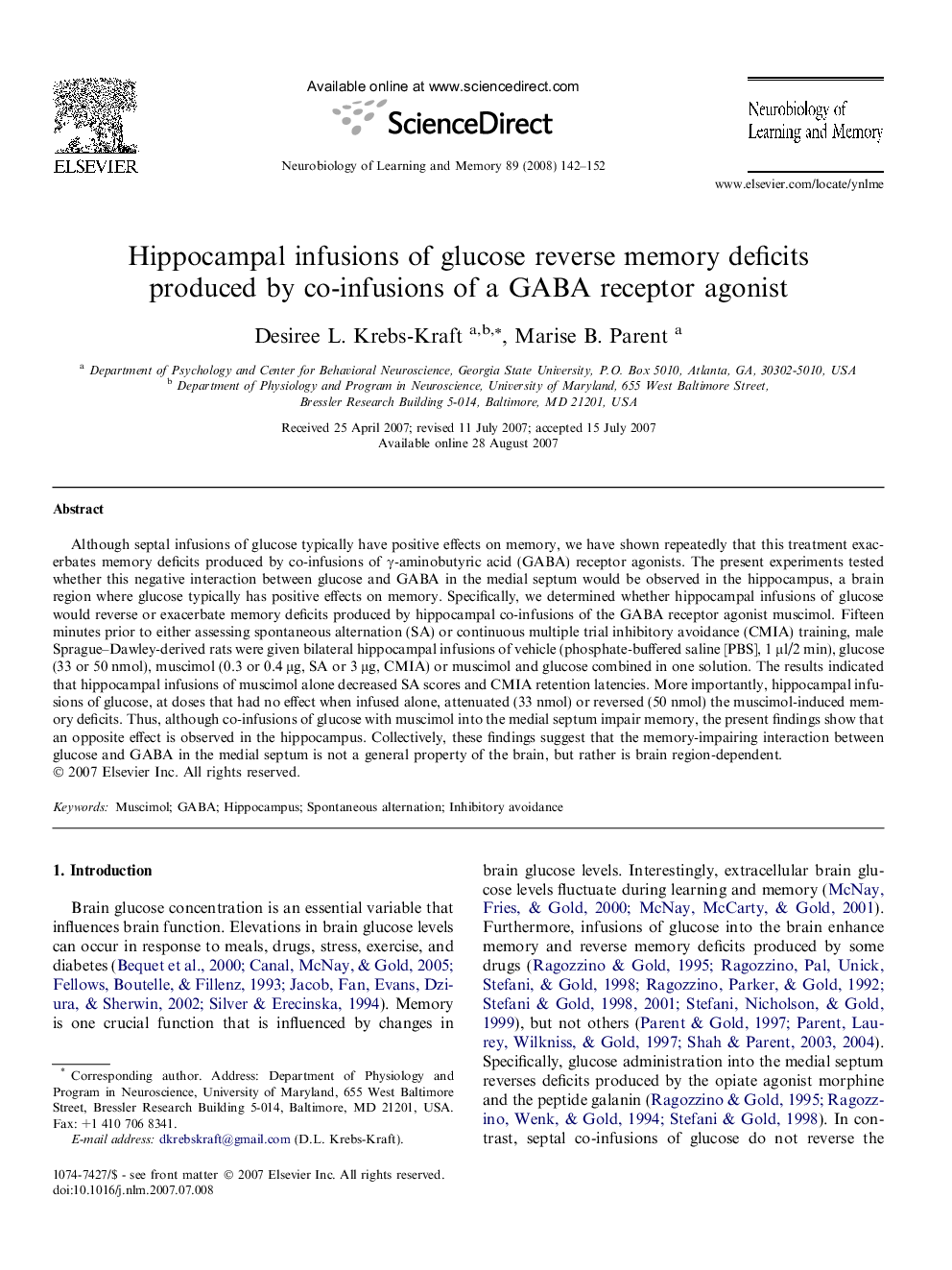| Article ID | Journal | Published Year | Pages | File Type |
|---|---|---|---|---|
| 937126 | Neurobiology of Learning and Memory | 2008 | 11 Pages |
Although septal infusions of glucose typically have positive effects on memory, we have shown repeatedly that this treatment exacerbates memory deficits produced by co-infusions of γ-aminobutyric acid (GABA) receptor agonists. The present experiments tested whether this negative interaction between glucose and GABA in the medial septum would be observed in the hippocampus, a brain region where glucose typically has positive effects on memory. Specifically, we determined whether hippocampal infusions of glucose would reverse or exacerbate memory deficits produced by hippocampal co-infusions of the GABA receptor agonist muscimol. Fifteen minutes prior to either assessing spontaneous alternation (SA) or continuous multiple trial inhibitory avoidance (CMIA) training, male Sprague–Dawley-derived rats were given bilateral hippocampal infusions of vehicle (phosphate-buffered saline [PBS], 1 μl/2 min), glucose (33 or 50 nmol), muscimol (0.3 or 0.4 μg, SA or 3 μg, CMIA) or muscimol and glucose combined in one solution. The results indicated that hippocampal infusions of muscimol alone decreased SA scores and CMIA retention latencies. More importantly, hippocampal infusions of glucose, at doses that had no effect when infused alone, attenuated (33 nmol) or reversed (50 nmol) the muscimol-induced memory deficits. Thus, although co-infusions of glucose with muscimol into the medial septum impair memory, the present findings show that an opposite effect is observed in the hippocampus. Collectively, these findings suggest that the memory-impairing interaction between glucose and GABA in the medial septum is not a general property of the brain, but rather is brain region-dependent.
